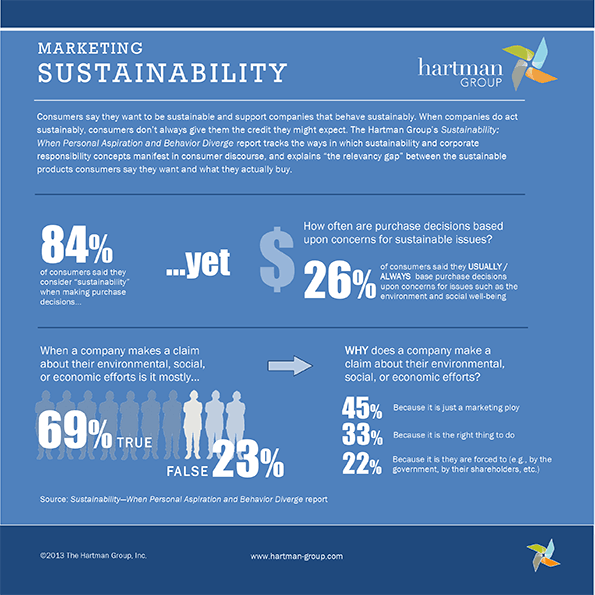
Consumers want retailers and brands to share their sustainability values, but are they willing to pay up with their hard-earned green?
Findings by The Hartman Group shown in the below infographic display a disconnect between consumer concern and buying decisions.

Will your customers pay for sustainability?
The research company found that consumers care about broad business practices but often evaluate products separately. Hartman highlights these examples:
In meat, animal welfare is the most salient dimension of responsibility because consumers believe animals that have lived a good life provide healthier meat.
In chocolate, Fair Trade counts because Fair Trade practices indicate a higher quality bar, made by a company with a passion for ingredients.
In cosmetics, animal welfare matters because consumers assume that a product tested on animals contains chemicals they would worry about putting on their skin.
In household cleaners, air and water pollution connects because consumers assume that a product that causes pollution must contain harsh chemicals that are unsafe to have in the home.
Understanding these values helps retailers as well as brands share the sustainability story in a more pertinent way.

About the Author(s)
You May Also Like
.png?width=700&auto=webp&quality=80&disable=upscale)




